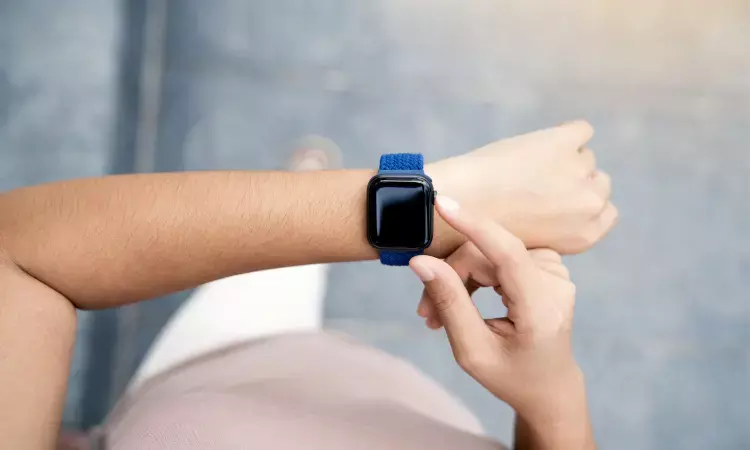- Home
- Medical news & Guidelines
- Anesthesiology
- Cardiology and CTVS
- Critical Care
- Dentistry
- Dermatology
- Diabetes and Endocrinology
- ENT
- Gastroenterology
- Medicine
- Nephrology
- Neurology
- Obstretics-Gynaecology
- Oncology
- Ophthalmology
- Orthopaedics
- Pediatrics-Neonatology
- Psychiatry
- Pulmonology
- Radiology
- Surgery
- Urology
- Laboratory Medicine
- Diet
- Nursing
- Paramedical
- Physiotherapy
- Health news
- Fact Check
- Bone Health Fact Check
- Brain Health Fact Check
- Cancer Related Fact Check
- Child Care Fact Check
- Dental and oral health fact check
- Diabetes and metabolic health fact check
- Diet and Nutrition Fact Check
- Eye and ENT Care Fact Check
- Fitness fact check
- Gut health fact check
- Heart health fact check
- Kidney health fact check
- Medical education fact check
- Men's health fact check
- Respiratory fact check
- Skin and hair care fact check
- Vaccine and Immunization fact check
- Women's health fact check
- AYUSH
- State News
- Andaman and Nicobar Islands
- Andhra Pradesh
- Arunachal Pradesh
- Assam
- Bihar
- Chandigarh
- Chattisgarh
- Dadra and Nagar Haveli
- Daman and Diu
- Delhi
- Goa
- Gujarat
- Haryana
- Himachal Pradesh
- Jammu & Kashmir
- Jharkhand
- Karnataka
- Kerala
- Ladakh
- Lakshadweep
- Madhya Pradesh
- Maharashtra
- Manipur
- Meghalaya
- Mizoram
- Nagaland
- Odisha
- Puducherry
- Punjab
- Rajasthan
- Sikkim
- Tamil Nadu
- Telangana
- Tripura
- Uttar Pradesh
- Uttrakhand
- West Bengal
- Medical Education
- Industry
Digoxin and beta-blockers have equivalent effects on heart rate at rest and on exertion in AF patients: Study

A new study by Simrat Gill and team unveiled that Digoxin and beta-blockers had similar effects on heart rate in atrial fibrillation at rest and during exercise which implies that dynamic monitoring of persons with arrhythmia using wearable technology might be a viable alternative to in-person examination. The findings of this study were published in the journal of Nature Medicine.
The patients with cardiovascular illness may require several clinical visits to acquire tests such as electrocardiograms (ECG) for heart rate measurement or 6-minute walk (6MW) assessments to determine physical capability. One prominent illustration of the potential clinical utility of wearable sensor data is medication selection and dose modification for heart rate control in people who have atrial fibrillation (AF). And so, this study was set to determine if digoxin is weaker than beta-blockers for long-term heart rate regulation among individuals with AF at rest and during exercise, as well as to see if wearable sensor data are equivalent to traditional assessments.
The RATE-AF trial wearables research evaluated heart rates in elderly, multimorbid individuals with persistent atrial fibrillation and heart failure who were randomly assigned to either digoxin or beta-blockers. Over a 20-week period, 53 volunteers with mean age of 75.6 years (40% female) used a wrist-worn wearable connected to a smartphone. This study included 143,379,796 participants to measure their heart rate and 23,704,307 participants to measure physical activity.
The outcomes of this research found no statistically significant difference in heart rates between the individuals treated with digoxin and beta-blockers. After controlling for physical activity or patients with high activity levels (≥30,000 steps per week), there was no change observed in heart rate between the two patient groups.
This research discovered that wearable device data could predict New York Heart Association functional class five months after baseline assessment in a manner similar to standard clinical measurements of electrocardiographic heart rate and 6-minute walk test, using a convolutional neural network built to account for missing data. Overall, to assess continuous, ambulatory heart rate and physical activity, a consumer-grade wearable device and smartphone can be effectively used for older, multimorbid patients.
Reference:
Gill, S. K., Barsky, A., Guan, X., Bunting, K. V., Karwath, A., Tica, O., Stanbury, M., Haynes, S., Folarin, A., Dobson, R., Kurps, J., Asselbergs, F. W., Grobbee, D. E., Camm, A. J., Eijkemans, M. J. C., Gkoutos, G. V., & Kotecha, D. (2024). Consumer wearable devices for evaluation of heart rate control using digoxin versus beta-blockers: the RATE-AF randomized trial. In Nature Medicine (Vol. 30, Issue 7, pp. 2030–2036). Springer Science and Business Media LLC. https://doi.org/10.1038/s41591-024-03094-4
Neuroscience Masters graduate
Jacinthlyn Sylvia, a Neuroscience Master's graduate from Chennai has worked extensively in deciphering the neurobiology of cognition and motor control in aging. She also has spread-out exposure to Neurosurgery from her Bachelor’s. She is currently involved in active Neuro-Oncology research. She is an upcoming neuroscientist with a fiery passion for writing. Her news cover at Medical Dialogues feature recent discoveries and updates from the healthcare and biomedical research fields. She can be reached at editorial@medicaldialogues.in
Dr Kamal Kant Kohli-MBBS, DTCD- a chest specialist with more than 30 years of practice and a flair for writing clinical articles, Dr Kamal Kant Kohli joined Medical Dialogues as a Chief Editor of Medical News. Besides writing articles, as an editor, he proofreads and verifies all the medical content published on Medical Dialogues including those coming from journals, studies,medical conferences,guidelines etc. Email: drkohli@medicaldialogues.in. Contact no. 011-43720751


